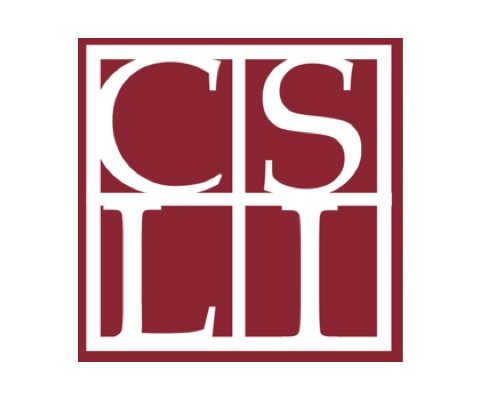Back to series


FOCUS OF THE MONTH: THE GREAT SIN
Learn more in our Dawn Treader Magazine
 “The great sin” is what C.S. Lewis, and many theologians and scholars, called pride, and the Scriptural witness bears out their viewpoint. What makes pride such a dreadful sin? What can we do to recognize and correct it in our own lives and in how we parent our children? What exactly does the Bible mean by pride and its opposite, humility or “meekness? (Matthew 11:29-30).
“The great sin” is what C.S. Lewis, and many theologians and scholars, called pride, and the Scriptural witness bears out their viewpoint. What makes pride such a dreadful sin? What can we do to recognize and correct it in our own lives and in how we parent our children? What exactly does the Bible mean by pride and its opposite, humility or “meekness? (Matthew 11:29-30).
For week one, ask the first question over an unhurried meal. Let the children think about it and then offer their own answers. The children should talk more than the parents. Throughout the week, offer the different reasons highlighted and let the children discuss them. (Parents, read through the relevant Bible passages in advance.) Challenge the children to look up other verses addressing the question. Do the same for the following questions each week for the month.
QUESTIONS TO HELP YOUR FAMILY GROW
Week One:
What is pride (and what is it not)?
Read: Romans 1:28-32, 1 Timothy 6:3-6
- Pride is preferring ourselves to God; wanting to “do it all ourselves” instead of depending on Him and following His Ways.
- Pride was what caused Adam and Eve to listen to the serpent in the Garden of Eden — they wanted to “be like God” (Genesis 3:5) — be the ones in charge.
- Human pride can only lead to death and despair, separation from God.
- Trying to do well and being pleased when you have succeeded is not pride, as long as we remember that all our talents come from God and that we should thank Him for them.
- When we do our best in dependence on God, we are acknowledging that we must work hard to fulfill the calling God has set for us, with a servant’s attitude, remembering that while there is genuine pleasure in “a job well done,” we know that it is God’s work, not ours, and therefore nothing to boast about.
- People often refuse help out of “pride” — but there is a difference between wanting to be responsible for your own actions (which is courageous and unselfish, not proud) and being unable (through selfish pride) to admit when you cannot do things on your own and need God and other human beings to support you.
Week Two
How has pride been destructive to the world?
Read: Leviticus 26:18-21, Psalm 12:1-8, Proverbs 7:16-17
- All sin is rooted in pride. Choosing to go against God’s way and preferring our own ways, as though we thought we knew better than He, is pride.
- Pride also destroys human relationships and societies. When people are proud, they will not listen to others’ wishes or admit when they have been wrong or have made a mistake, and then will not apologize for hurting others. This leads to most of the misunderstandings and quarrels in the world.
- Evil dictators are always acting from pride; they are so puffed up in themselves that they will not follow God’s rules.
Week Three:
How should we ask God to help us to deal with the pride in ourselves?
Read: Proverbs 18:12, Micah 6:8, James 4:5-12
- First, we must recognize that we are proud, prefer our own ways to God’s ways, and then confess it to Him in acknowledgement of our sin.
- This needs to be a frequent prayer. Nearly every area of our lives and our particular weaknesses can be easily affected by pride, so we must be prepared to ask God to constantly reveal it to us and to help us to overcome our pride in various areas.
- We must look to Jesus as our example. He never thought about Himself at all, only about saving us and doing the will of His Father (John 8:28-29).
- Pride grows weaker when we think about others more than about ourselves, so pray that God will increase His love in you for your neighbor as well as take away your tendencies towards pride and self-centeredness.
Week Four:
What are the signs of humility and meekness in a follower of Jesus?
Read: Proverbs 15:33, Acts 16:16-39, 1 Peter 5:5
- Humility, first of all, means consulting God’s Word and submitting to His guidance, rather than going by how we feel personally when we must make decisions and choices in life.
- Humility shows itself in listening to others instead of always talking about ourselves, in giving way, and letting others have what they want instead of always demanding what we want.
- Manners and civility are signs of humility, and therefore important to develop as followers of Jesus, not simply as members of a “civilized” society. Manners are a way of showing that we think that other people are more important than our own personal habits.
- Nothing is more important than what God thinks. True humility is very bold and stands against anything that is wrong, not because of what we want but because of what God wants. Don’t confuse meekness with weakness!
C.S. Lewis Institute
Author
C.S. Lewis Institute, in the legacy of C.S. Lewis, works to develop wholehearted disciples of Jesus Christ who will articulate, defend, share, and live their faith in personal and public life. Founded in 1976 by Dr. James Houston and James R. Hiskey, the Institute provides leading teachers who address important issues of the day from the perspective of Biblical orthodoxy, while also providing discipleship for individuals in small groups.

 COPYRIGHT: This publication is published by C.S. Lewis Institute; 8001 Braddock Road, Suite 301; Springfield, VA 22151. Portions of the publication may be reproduced for noncommercial, local church or ministry use without prior permission. Electronic copies of the PDF files may be duplicated and transmitted via e-mail for personal and church use. Articles may not be modified without prior written permission of the Institute. For questions, contact the Institute: 703.914.5602 or email us.
COPYRIGHT: This publication is published by C.S. Lewis Institute; 8001 Braddock Road, Suite 301; Springfield, VA 22151. Portions of the publication may be reproduced for noncommercial, local church or ministry use without prior permission. Electronic copies of the PDF files may be duplicated and transmitted via e-mail for personal and church use. Articles may not be modified without prior written permission of the Institute. For questions, contact the Institute: 703.914.5602 or email us.
Speakers

C.S. Lewis Institute
Author
Team Members
C.S. Lewis Institute
Author
C.S. Lewis Institute, in the legacy of C.S. Lewis, works to develop wholehearted disciples of Jesus Christ who will articulate, defend, share, and live their faith in personal and public life. Founded in 1976 by Dr. James Houston and James R. Hiskey, the Institute provides leading teachers who address important issues of the day from the perspective of Biblical orthodoxy, while also providing discipleship for individuals in small groups.


